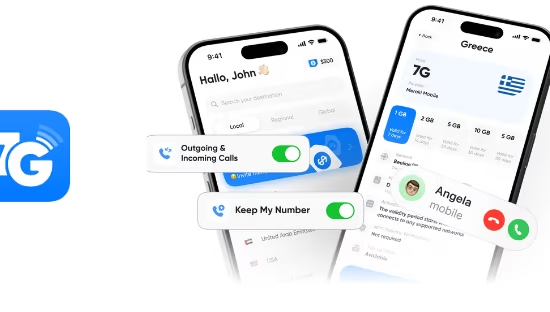
Swisscom Ventures Backs RiPSIM Technologies to Power the Next Wave of eSIM Innovation
In a move that could reshape how mobile network credentials are created and managed, Swisscom Ventures has made a strategic investment in RiPSIM Technologies, the company behind the world’s first cloud-native software platform for generating and delivering mobile network authentication credentials on demand.
The deal signals growing momentum in the eSIM-as-a-Service space—a sector that’s becoming increasingly critical as telecoms, enterprises, and IoT providers race to modernize connectivity at scale.
Swisscom’s Decade-Long eSIM Expertise Meets RiPSIM’s Cloud-Native Edge
As Switzerland’s largest telecom and ICT provider, Swisscom has long been a European frontrunner in eSIM adoption. With more than ten years of experience deploying eSIM technology across its network, Swisscom understands the challenges of scaling secure, flexible mobile authentication in an era where physical SIMs are rapidly fading out.
By investing in RiPSIM, Swisscom Ventures isn’t just backing another startup—it’s aligning with a platform that reimagines how network credentialing can work in a cloud-first, software-defined world. RiPSIM’s eSIM-as-a-Service model allows carriers and enterprise operators to generate, distribute, and manage eSIM credentials instantly and securely—without depending on the traditional, hardware-bound systems that have defined SIM manufacturing for decades.
“RiPSIM is addressing a critical challenge for network operators,” said Semih Kaçan, Investment Director at Swisscom Ventures. “Their cloud-native platform gives carriers the agility and speed to create and deliver eSIMs instantly, whenever and wherever they’re needed. We’re confident this technology will scale globally and make a lasting impact for many who need these advantages.”
 The eSIM Shift Is Accelerating—And So Are the Stakes
The eSIM Shift Is Accelerating—And So Are the Stakes
Today, eSIMs are already embedded in billions of smartphones, wearables, cars, and industrial IoT devices. But the next phase of growth will be explosive. RiPSIM estimates that over the next five years, eSIM-secured devices will jump from 20% to more than 70% of the global connected base.
That surge brings both opportunity and complexity. As networks move toward 5G standalone, private LTE, and IoT edge deployments, managing authentication credentials securely and efficiently becomes a mission-critical issue.
The legacy SIM supply chain—built around physical chips, batch personalization, and manual logistics—simply isn’t designed for this new reality. RiPSIM’s platform solves that by virtualizing the entire process, making credential generation as dynamic and scalable as cloud storage or computing.
This agility could prove game-changing for enterprise private networks, IoT device makers, and even MVNOs (mobile virtual network operators) seeking faster go-to-market times.
As Chris Jahr, RiPSIM’s Founder and CSO, explained:
“The true impact of the mobile evolution isn’t just about new devices—it’s about the explosion of entities running their own networks. Yet the industry still lacks the capacity to deliver wireless authentication credentials at the scale required for tens of thousands of private networks. Swisscom Ventures sees the potential in our technology to make a meaningful difference for customers worldwide.”
Why This Matters: The Cloud Is Rewriting Telecom Infrastructure
The rise of cloud-native architecture is transforming how telecom networks operate. Once reliant on proprietary, hardware-heavy systems, operators are now shifting to software-driven infrastructures where everything—from the core to the SIM—is programmable and on demand.
That’s precisely where RiPSIM positions itself. It brings the same DevOps agility and scalability that cloud computing brought to IT—now applied to the domain of network authentication. The platform could allow telecoms to respond in real-time to enterprise needs, launch new services faster, and reduce reliance on physical supply chains or third-party provisioning centers.
Swisscom’s involvement isn’t incidental here. The company has been pioneering cloud-based network transformation for years, investing heavily in virtualization, cybersecurity, and data-driven telco services. Supporting RiPSIM aligns perfectly with Swisscom’s strategy to build resilient, software-defined networks that can adapt to new customer models—from connected cars to global IoT deployments.
Market Context: RiPSIM vs. the Rest
RiPSIM isn’t the only player rethinking eSIM infrastructure, but its approach stands out. Competitors like Giesecke+Devrient (G+D), Thales, and Idemia dominate the traditional SIM and eSIM management ecosystem, offering hardware-backed solutions and remote provisioning systems certified by GSMA.
However, RiPSIM’s cloud-native model takes a different route. Instead of relying on centralized systems or secure hardware modules, it provides a flexible software stack that can run in public, private, or hybrid cloud environments—ideal for the increasingly decentralized world of telecom.
This flexibility echoes a broader trend highlighted by GSMA Intelligence and Juniper Research, which both forecast that cloud-based eSIM management will underpin the majority of new IoT and consumer activations by 2030.
Moreover, as the private network market—estimated by Analysys Mason to exceed $7 billion by 2028—continues to expand, solutions like RiPSIM’s will be vital in giving enterprises the autonomy to manage their own connectivity lifecycles securely.
A Smart Bet on the Future of Mobile Identity
Swisscom Ventures’ investment isn’t just financial—it’s strategic. By integrating RiPSIM’s eSIM-as-a-Service platform into its telecom offerings, Swisscom gains a new layer of agility, particularly in serving enterprise and IoT clients.
For RiPSIM, it’s a launchpad to accelerate product development, scale globally, and collaborate with one of Europe’s most trusted network operators. For the telecom industry, it’s another signal that eSIM technology is moving beyond devices—and into the cloud.
In a market still dominated by legacy systems, RiPSIM’s approach represents a clean break from the past: fast, programmable, and built for scale. And if the eSIM revolution continues as predicted, this partnership might just mark the moment when mobile identity truly became cloud-native.





 The eSIM Shift Is Accelerating—And So Are the Stakes
The eSIM Shift Is Accelerating—And So Are the Stakes




